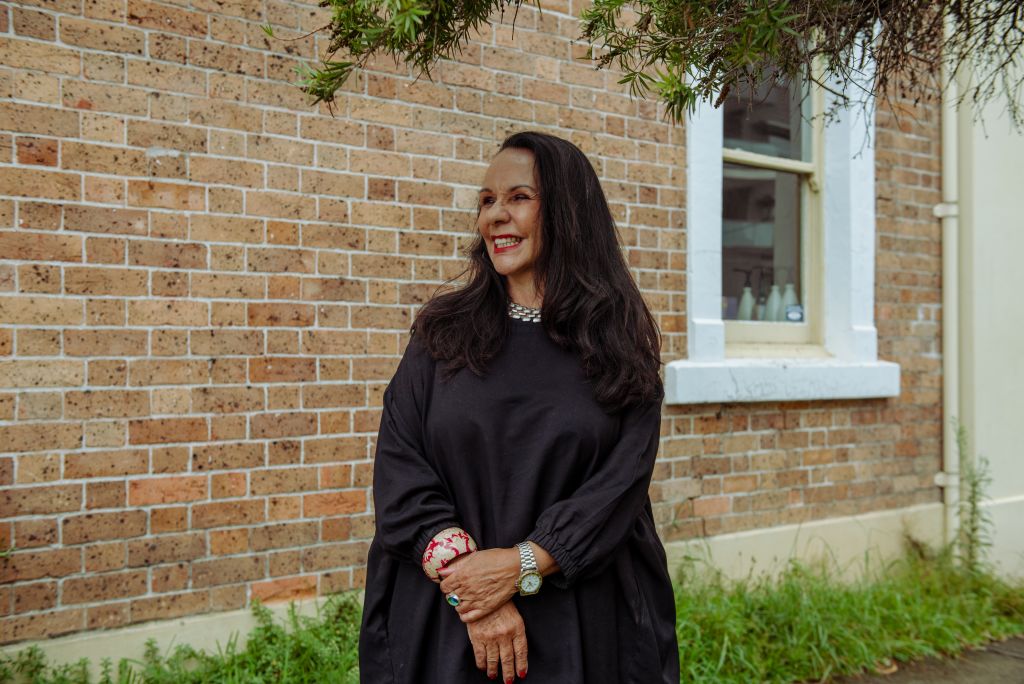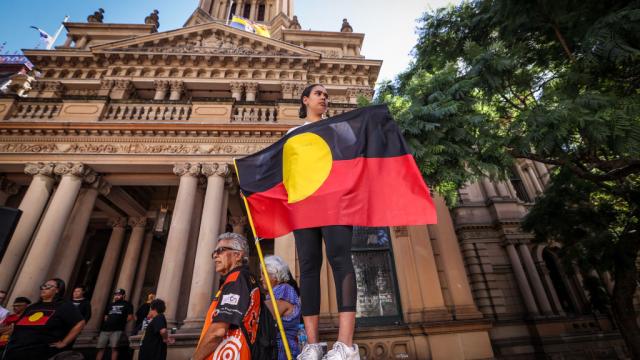If you were watching along live as Prime Minister Anthony Albanese delivered his victory speech after the Federal Election, you’ll know that one of the first things he said (after delivering an Acknowledgement of Country) was “on behalf of the Labor party I commit to the Uluru Statement.”
From the parliament house media room, he stressed this promise once again, stating that “We will, of course, be advancing the need to have constitutional recognition of First Nations people, including a Voice to Parliament that is enshrined in that constitution.”
So what is the Uluru Statement from the Heart and how can it help the government better address the issues faced by First Nations people in Australia? Let’s take a look.
What is the Uluru Statment from the Heart?
In May 2017, the Uluru Statement from the Heart was written following the First Nations National Constitutional Convention. As the ABC writes, 250 Indigenous delegates from all over Australia met at Uluru and produced the statement that was then presented to the federal government. It is the result of two years of work.
The statement delves into the 60,000-year history First Nations communities hold with this land, along with the current struggles experienced by Aboriginal and Torres Strait Islander peoples.
It reads:
Proportionally, we are the most incarcerated people on the planet. We are not an innately criminal people. Our children are aliened from their families at unprecedented rates. This cannot be because we have no love for them. And our youth languish in detention in obscene numbers. They should be our hope for the future.
The Uluru Statement from the Heart then goes on to highlight the need for change and the power such change would have.
We seek constitutional reforms to empower our people and take a rightful place in our own country. When we have power over our destiny our children will flourish. They will walk in two worlds and their culture will be a gift to their country.
We call for the establishment of a First Nations Voice enshrined in the Constitution.
Additionally, it highlights that “Makarrata is the culmination of our agenda”. A Makarrata (a Yolgnu word meaning ‘a coming together after a struggle’) Commission would “supervise a process of agreement-making between governments and First Nations and truth-telling about our history.”
You can read the statement in full here. In essence, however, it seeks to gain First Nations peoples the right to advise on laws that impact their lives and stresses the need for a treaty with the traditional custodians of this land.
The three reforms highlighted are: Voice, Treaty, Truth.
How would a Voice to Parliament work?
Per the Parliament of Australia website, the Uluru Statement from the Heart’s request for a Voice to Parliament represents the introduction of an Indigenous body, written into the Constitution, that the government would need to consult on any legislation or policy affecting First Nations communities.
In the simplest of terms, as it is summarised on the Uluru Statement from the Heart website, “This simply means the right to give advice on laws that affect First Nations peoples”.
The call to have a Voice to Parliament enshrined in the Australian Constitution is significant as it would protect its establishment from future governments. But it also means it would need to be passed at a referendum to be implemented.
A referendum would see Australia vote on a single issue – in this case, the establishment of a Voice to Parliament – and requires the support of the majority of people in a majority of the states and territories across Australia in order to be passed.
Since 1901, there have been some 44 referendums held in Australia – eight have passed.
What’s next for the Uluru Statement from the Heart?

Now that the Labor government has committed to the Uluru Statement from the Heart, and by extension, the referendum, we wait and see when this process will kick off.
As shared by the Sydney Morning Herald, First Nations leaders have suggested two possible dates on which a referendum could be held, May 27, 2023 (the anniversary of the 1967 Indigenous referendum), or January 27, 2024.
Incoming Indigenous Affairs Minister Linda Burney, who is a proud member of the Wiradjuri nation, spoke with the SMH about the next steps. Here, Burney shared that she simply hopes to choose a date on which the referendum is most likely to pass.
“The political call will be when we think it’s going to be successful, but those dates are very instructive,” she told the newspaper.
“Our goal is to get a referendum up in the first term,” she said. “We want to try and achieve bipartisanship but if that’s not possible, we will not wait.”
If you would like to read more on the Uluru Statement, you can visit the website here. Please be warned, however, that this website does feature images, quotes and references to people who have passed on.

Leave a Reply
You must be logged in to post a comment.